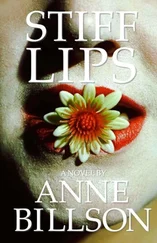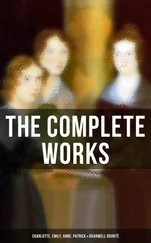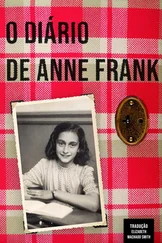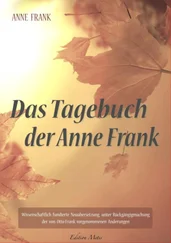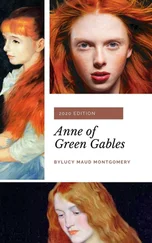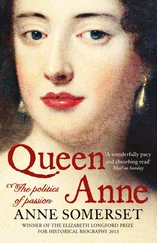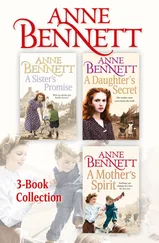And life, for a while, was like a dream. He was the teacher I'd been looking for; he showed me around town, gave me books to read, took me to Chinese restaurants and Japanese films — he liked samurai movies, and did a great impersonation of Toshiro Mifune in Yojimbo . He showed me round his favourite cemeteries, and I watched him take photographs, though for some reason he never took any of me. He always said he was going to, but he never got round to it. He promised that one day he would show me Pere Lachaise, in Paris. It was the best cemetery in the world, he said. Oscar Wilde and Jim Morrison were buried there.
The funny part was — I'd fantasized about him so much that, in the flesh, he was disappointing, not nearly as exciting as I'd first imagined. Sex was no more than satisfactory, conversation brittle and superficial. We traded trivialities, and talked about popular culture, and that was it. I wanted passion and intensity, but he kept that part of himself locked away. Given time, I would have decided he wasn't worth the effort. Given time, I would have extracted what I needed, and moved on.
But time was what I didn't get.
One evening, I was alone in the etching department, up on the top floor. I had signed up for a crash course in etching because Duncan was going to be there all week, transferring some of his photographic designs on to plates, and I liked to keep an eye on him. That afternoon he had left early to return some borrowed equipment, but I'd stayed on. I'd rolled a layer of etching-ground on to a fresh plate and blackened it with one of those medieval-looking torches they still used in the department, the sort I imagined would be carried by villagers when they stormed the Transylvanian castle. I was working on the latest in a series of severed heads. I'd already done Salome, and Isabella with her pot of basil, and now I was more than halfway through Medusa.
I could hear the faint noise of traffic outside, but the room seemed cut off from the rest of the world. The air was heavy with hot wax and lavender, and the smell was making me sleepy. I'd just finished scratching the last of the snakes into the lampblack and had slipped the plate into the acid. I was engrossed in the tiny bubbles when I heard someone humming. The tune was familiar, but I couldn't place it.
I looked up just in time to see her come in, and go directly to the desk where Duncan had been working. She stopped humming and studied his half-finished plate. Her head was bowed, and I couldn't see much of her face because her hair fell forward in a dark curtain, and she was bundled up to her chin in big fur. She was dressed all in black, like me, but her clothes didn't look as though they came from the Oxfam shop. She was smaller than me, and skinnier too, beneath all the wrapping. She had the tiniest hands and feet I'd ever seen; they were encased in black leather gloves, and in black leather boots with pointed toes and peculiar curved heels — I had never seen boots quite like those before. She was dressed as if for winter in Siberia, though the evening was unusually mild. The weathermen were attributing the unseasonably high temperatures to a drifting band of volcanic dust which was giving us a series of spectacular blood-red sunsets.
She bent over Duncan's desk, and — without removing her gloves — scribbled something on a scrap of paper. Then she stood up straight again, and the way she held herself you would have thought she was taller than she really was. As she turned to leave, her gaze met mine for the briefest instant. There was no surprise, because she'd known I was there all along — those eyes knew everything there was to know.
But she wasn't interested in me, not in the slightest. She broke eye contact almost immediately, and just before she disappeared she started to hum again. It wasn't until the humming had faded that I finally put my finger on the tune: one of Verdi's greatest hits, the drinking song from La Traviata .
I felt cold all of a sudden, as if she had left a breath of winter behind, but there was no particular sense of dread. Just fuzziness, as though I were coming round after anaesthetic. I went over to read her note. The handwriting was spindly, a trail of ink left by wandering spiders.
' Duncan — the DeMille, tomorrow night, nine o'clock. Violet.'
Violet , I thought. What an unusual name .
Duncan said, 'I think I'm in love,' and the blood rushed to my head. For a few seconds I was flying higher than I had ever flown before — higher than I would ever fly again as long as I lived. I thought he was talking about him and me. This was the Age of Innocence, before the Fall.
I could be forgiven for getting it wrong, because for the last half hour we'd been discussing my favourite topic of conversation — me. Or rather, Duncan had been talking, and I'd been lapping it up. He'd been telling me what an extraordinary person I was, how rare, how talented, and how privileged he was to know me. I should have guessed something was up.
He might have been trying to soften the blow, but only succeeded in making it that much more crushing, when it finally came. He should have been brutal to start with. Here we were in this sandwich bar, and in between eruptions of steam from the Gaggia, I could hear Steve Harley singing 'Come up and see me, Make me smile' , and I could hear Duncan saying how terribly fond he was of me, and he didn't want me to get hurt, and that was why we should stop seeing each other.
I couldn't believe my ears. I thought I was going to have a hysterical screaming fit, right there in the sandwich bar. Then something snapped, very quietly, like an old elastic band which had been stretched too long and too tightly in my head, and I felt my entire life shift into a different gear. I could see Duncan's lips moving. I could hear the traffic, and the patter of feet on the pavement, the murmur of voices and the distant wailing of a siren, and all these things were leaving vapour trails of noise. In that instant, my mind separated from the rest of me and struck out on its own. From then on, I was like a movie to which the wrong subtitles had been added; the written words bore no relation to what the voices were actually saying on the soundtrack. I was screaming inside, but it was with detached fascination that I could hear myself saying in a mild and reasonable voice, 'Yes, but we can still be friends.'
This was about a week after the note. When Friday evening came, I'd tried casually to entice him away from his rendezvous. With what had seemed like genuine regret he told me he had a prior commitment, an arrangement to meet with an old family friend, and in the morning he had to leave for Yorkshire — something about visiting his sick uncle, the one who owned the flat he was renting. Next Saturday, he promised, it would be different. Next Saturday we would go somewhere nice.
All right, I thought, let him go out with this woman if he wanted. An old family friend — maybe even old enough to be his mother. I thought of the bridge-playing turkeys my parents had always hung around with and decided she could pose no possible threat to me. I felt secure in the knowledge that I was someone special. Women like me didn't come along twice in one man's lifetime.
I was already aware of Duncan's habit of keeping in touch with ex-girlfriends. There were several of them around — strange women who drifted in and out of his life, who made guest appearances in his photographs every now and again. He said, only half joking, he had always found it difficult to let go of the past — he worried that a clean break would make him lose his grip on the present as well. So it didn't seem odd he should want to keep in touch with an old family friend. Especially since there didn't seem to be a lot of family left.
Читать дальше

